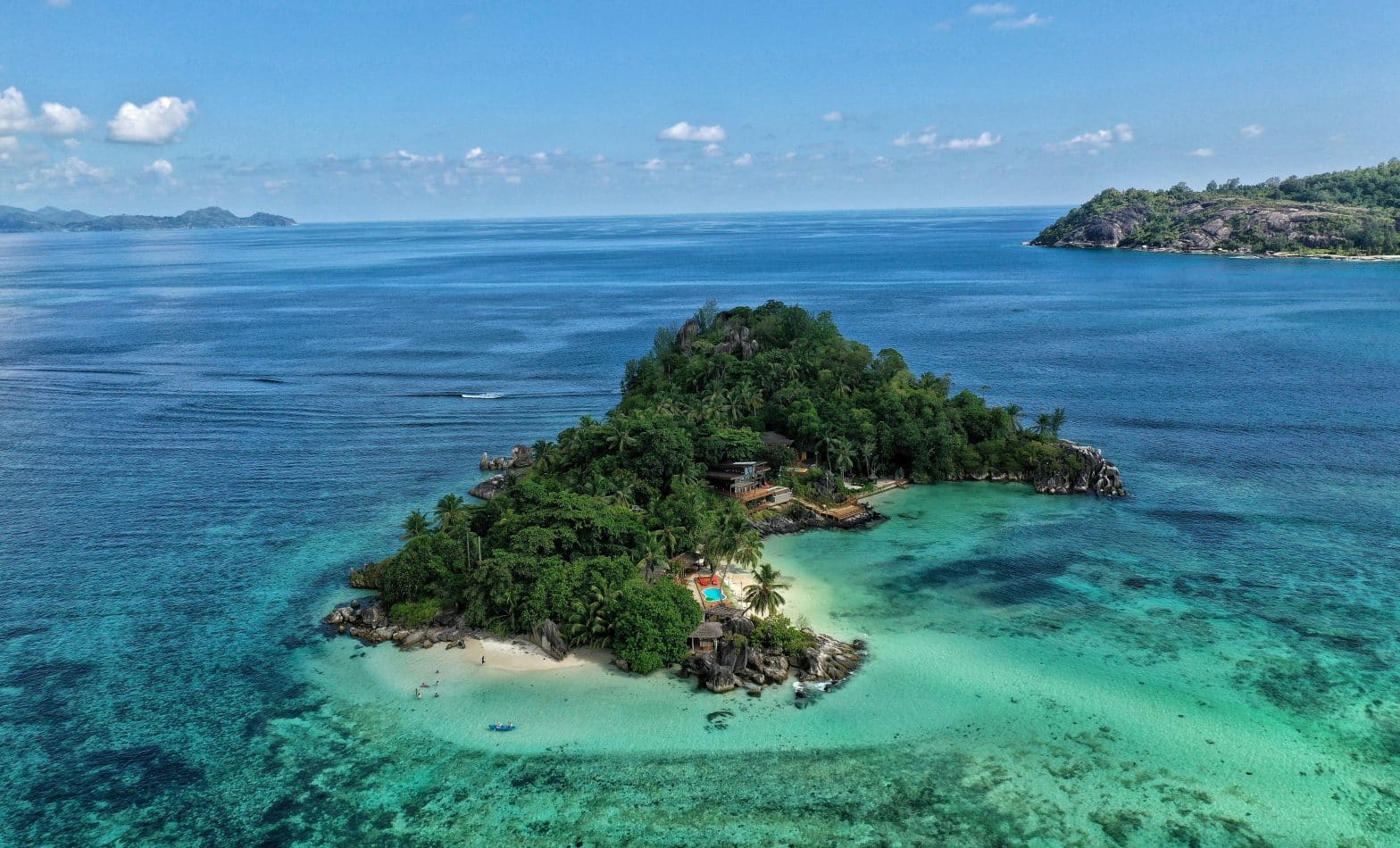It will have escaped no one’s notice that moving to the Seychelles is not quite the same as moving within Europe! Further away from Europe, but also more exotic, the Seychelles offer an idyllic setting in the heart of the Indian Ocean.
This picture-postcard setting is attracting more and more expats who have fallen in love with the archipelago after visiting. Whether you are planning to move there alone, with your family, as an entrepreneur or an employee, preparing well for your new life abroad will help you avoid many unexpected surprises.
In this guide, you will find all the information you need to make a success of your move to the Seychelles: administrative formalities, where to live and how much it costs, local culture, cost of living … we cover everything!
The advantages and disadvantages of living in the Seychelles: our opinion
Advantages
- A unique living environment, with white sandy beaches and topaz waters (in short, a never-ending holiday feeling)
- Lush nature, offering incredible hiking and unique scuba diving opportunities
- Temperatures between 25 and 32°C all year round
- A stable economy (the Seychelles’ GDP is the highest in Africa in 2024)
- Language is not a problem; the population speaks Creole, French and English
- Exotic fruits and vegetables galore (mango, papaya, avocado, etc.)
Disadvantages
- Recycling is very limited
- Imported goods are quite expensive
- Public transport and road infrastructure have room for improvement
Administrative formalities for moving to the Seychelles
Applying for a visa
The first step in moving to the Seychelles is to obtain a residence permit. As a foreign national, you have three main types of visa to choose from:
- The GOP (Gainful Occupation Permit), or work visa: the most common permit for expatriates, which allows you to work in the country in addition to living there. This visa can be applied for by your employer if you already have a Seychelles employment contract.
- The investor visa: this gives permanent residence to investors who invest at least US$1 million (€876,800) in an existing business or to set up a new company in the country.
- The student visa: for students aged 18 and over who wish to continue their studies in the Seychelles.

Once you have obtained your visa, you can apply for one or more ‘Dependents Permits’ for your spouse and/or minor children. We recommend that you apply for your visa online before arriving in the Seychelles through the Immigration Services on the following official website: https://seychelles.govtas.com/en
Obtaining your national identity card
Once you have obtained your visa, you must apply for a Seychelles national identity card on the following official website: https://www.seyid.gov.sc/
You will mainly need to provide two documents:
- Your valid passport
- And your residence permit (GOP, Dependent’s Permit, etc.)
You will then be able to obtain a Virtual ID, which is a virtual identity card that facilitates your transactions and administrative procedures in the country.
Accommodation in the Seychelles
The Seychelles is an archipelago of 115 islands, the main ones being Mahé (the largest), Praslin and La Digue.
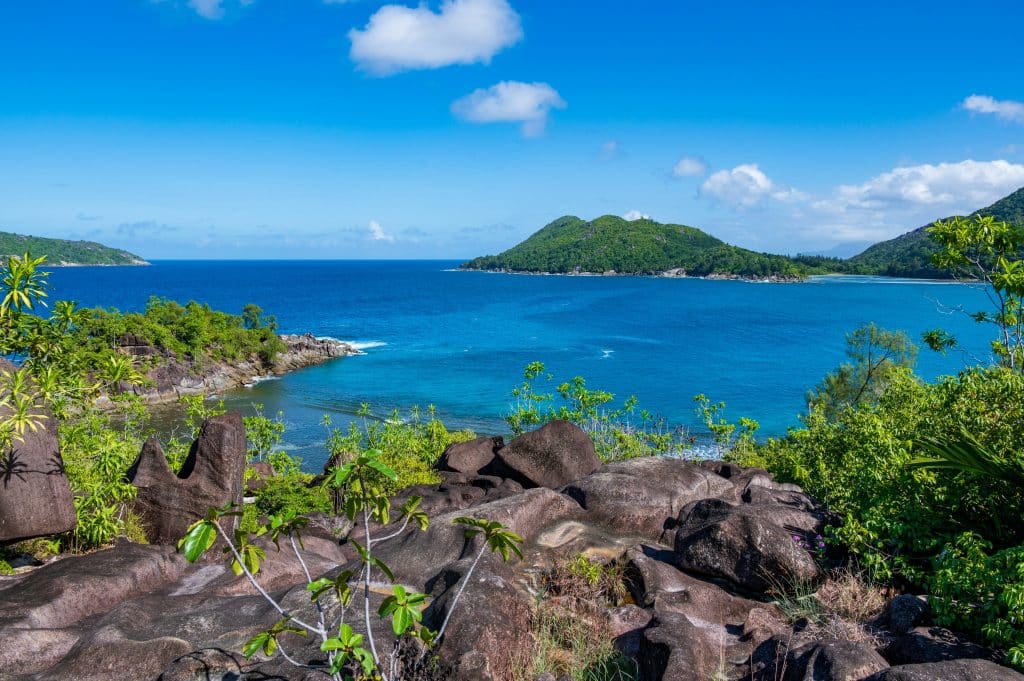
Mahé is the most popular island among expats, mainly because it is home to Victoria, the country’s capital and economic hub. Living in Victoria allows you to take advantage of its large professional market with job opportunities, especially in the fishing, tourism and service sectors.
Certain neighbourhoods in Mahé are popular with expats, such as Beau Vallon (a few kilometres from Victoria) and Anse Royale, further south.
On Praslin Island, foreign nationals generally choose to settle in neighbourhoods such as Anse Volbert, known for its long beach, and Grand’Anse, which is quieter and less populated.
Finally, the island of La Digue offers the most unspoilt living environment with its idyllic setting; expatriates who live there often work in the tourism sector or as digital nomads.
What type of accommodation should you choose?
In the Seychelles, you can choose between several types of accommodation: appartment, house, villa, bungalow…
The choice depends on your preferences and location. To find the ideal accommodation, we advise you to start your search as early as possible, either online or through a real estate agent.
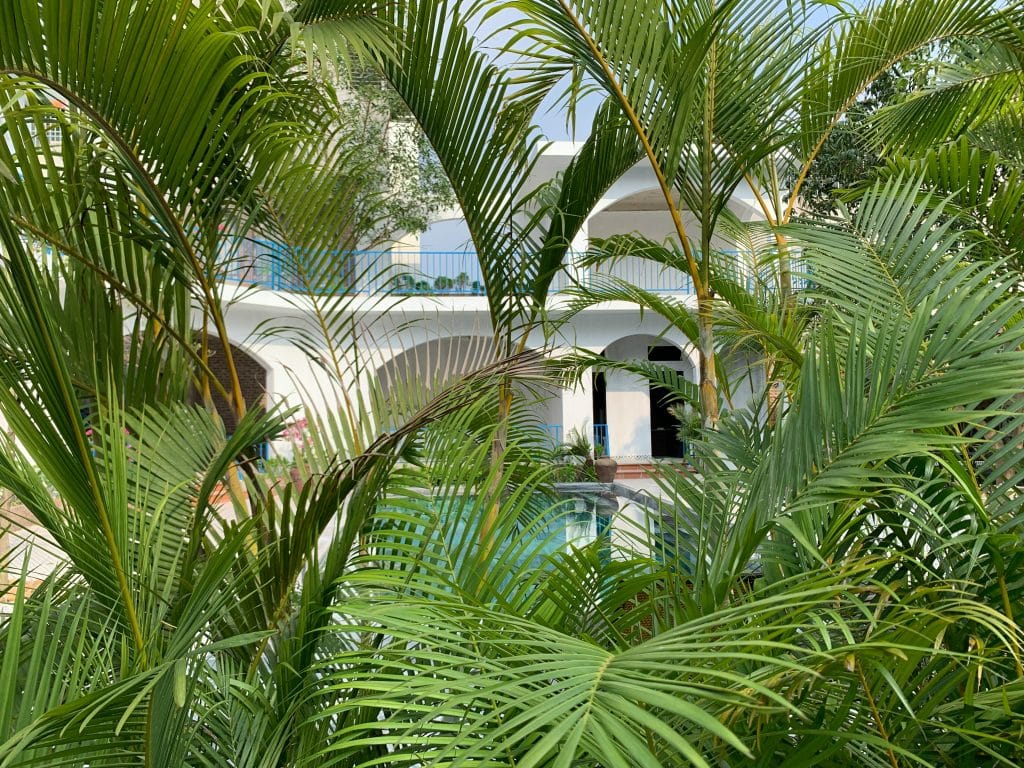
How much should you expect to pay?
Accommodation is one of the biggest expenses to expect when living in the Seychelles. On average:
- For a one-bedroom apartment in the city centre, expect to pay £700/ 800 € per month.
- Outside the city centre, prices drop slightly to £600/ 700 € per month.
- A three-bedroom apartment in the city centre for families costs an average of £1,400/ 1,700 € per month.
- And £1,000/1,400 € per month on the outskirts of the city.
Of course, villas on the coast are more expensive on average. If you want to buy a property, the price per square metre is around £500 to £650 (600 – 780 €).
The cost of living in the Seychelles
The cost of living in the Seychelles has risen in recent years, mainly due to the increase in global commodity prices.
- In concrete terms, a single person needs a monthly budget of £1,400/1,650 € to live comfortably in the country.
- A family of four should expect to spend £4,700/5,550 € per month.
These budgets include the main items of expenditure, namely shopping, rent, healthcare, education and leisure.
Despite rising prices in the country, the cost of living remains lower than in some other countries. For example, living in the Seychelles is 13% cheaper than in the United Kingdom, 4% cheaper than in France and 24% cheaper than in the United States.
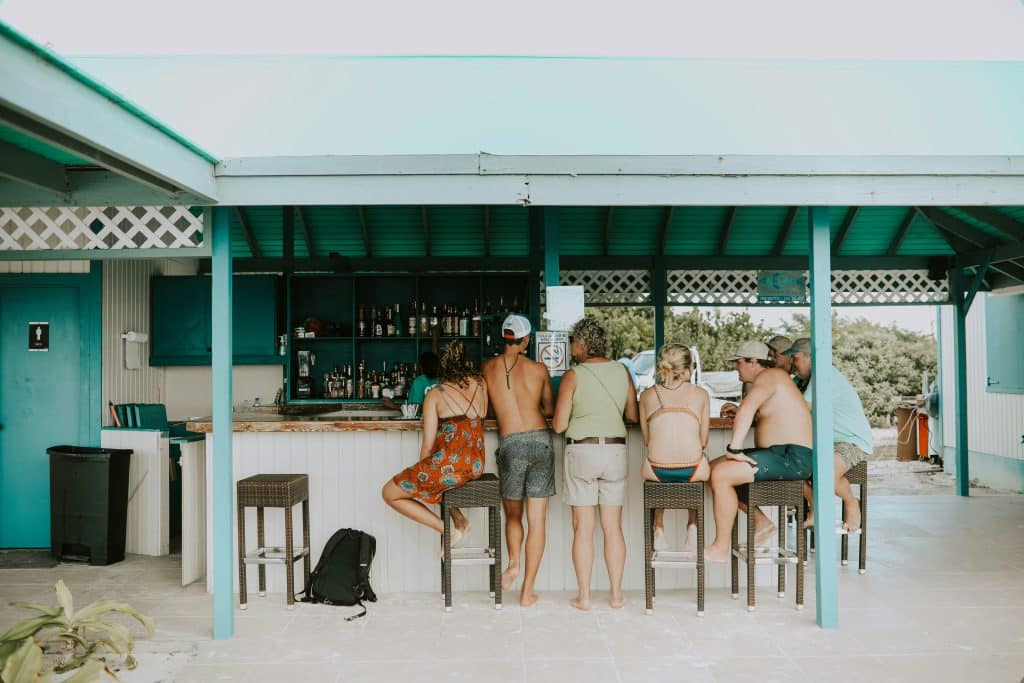
Getting around
If you are from a European country, forget all your travel habits! Getting around in the Seychelles is quite unique. On the country’s main islands, the preferred means of transport is the car. But be careful, they drive on the left, which is great, when you are from the UK.
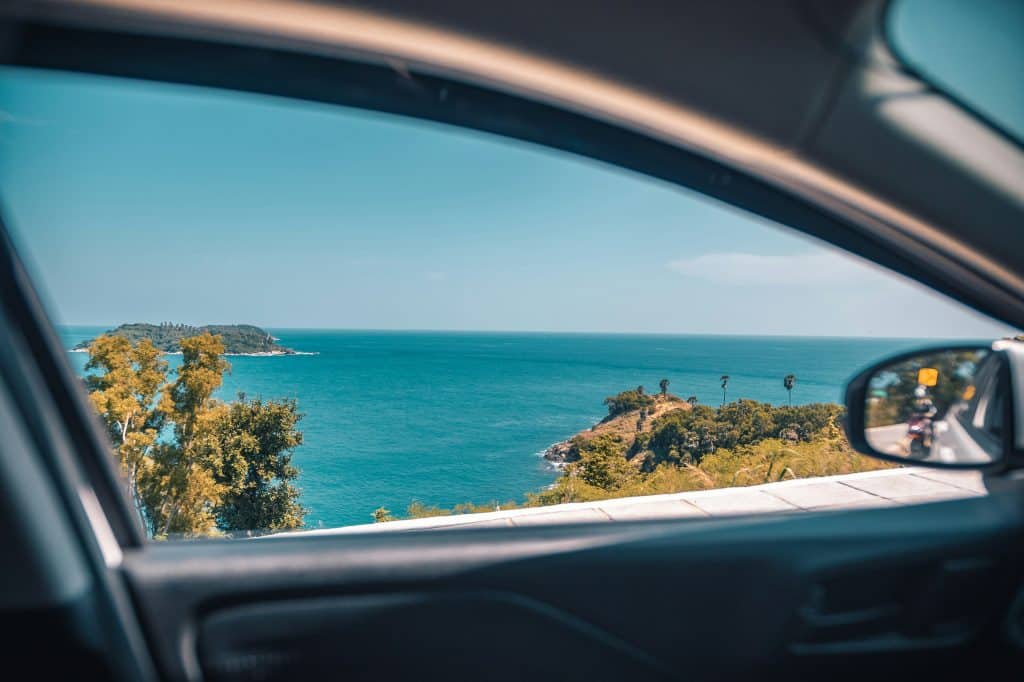
This is why, when they first arrive, expats tend to rent a car. However, when renting a car, it is important to take a few precautions:
- Ask for a recent model vehicle.
- Have the insurance policy translated into English and read all the clauses carefully.
Taxis are also quite common, but although the price is fixed per kilometre travelled, some drivers do not always apply this rule. To avoid unpleasant surprises, agree on a price for your journey before setting off.
Buses are the preferred means of public transport (and one of the only ones, it must be said) in the country. You can rely on Google Maps to help you get around and plan your routes.
Finally, several small airports connect the different islands, as do ferries.
Working in the country
Employability and opportunities:
The Seychelles’ professional sector is dynamic, with an economy based mainly on tourism (particularly hotels and restaurants) and financial services. Recent job vacancies also include positions in the new technology and sustainable development sectors.
Some positions are often competitive, as the Seychelles remain a relatively small archipelago with limited opportunities.
To increase your chances of securing a job as a foreign national, it is essential to highlight your qualifications and strengths. Fluency in English and French, for example, is highly valued by recruiters.

Average salary in the Seychelles:
The average annual salary in the Seychelles is 233,900 SCR (Seychelles rupees), or approximately £12,300/14,500 €.
However, expatriates often earn more than this average, as they generally hold senior management positions, sometimes within multinational companies.
Taxation:
The Seychelles has a personal income tax rate of 15%. This is an attractive rate, lower than the European average (around 40%).
Family life
Daily life in the Seychelles is really great for families. There’s loads to do, whether it’s spending time together out at the beach, exploring the different islands or enjoying outdoor activities.
Parents have loads of options for cultural outings, from museums to zoos and aquariums, which are scattered all over the country!

When it comes to education, expats can choose to send their children to public or private schools, including, e.g. The International School Seychelles.
Seychelles culture and society
If you have already been to the Seychelles, whether on holiday or on a business trip, you will have noticed how welcoming the locals are. The local population is divided between several religions, and freedom of worship is widespread throughout the country.
The culture of the archipelago is not indigenous, but it is deeply influenced by African traditions, particularly Creole customs. The moutia, a national dance listed as a UNESCO Intangible Cultural Heritage, is one of the most beautiful expressions of this culture!
The healthcare system in the Seychelles
In the Seychelles, the healthcare system is fairly limited and remains a sensitive issue, as the government is widely criticised for its shortcomings in this area.
Healthcare facilities are relatively good in Victoria, but all the islands lack modern, high-quality equipment.
In the event of hospitalisation or complex surgical operations, evacuation to the country of origin or to Reunion Island is common. Taking out private insurance is therefore essential to protect yourself and your family.
As an expatriate, it is best to take out international private health insurance. In the Seychelles, this has the advantage of covering emergency repatriation costs as well as medical and hospitalisation costs anywhere in the world.
Top things to do in the Seychelles
- Visit the unmissable Anse Source d’Argent, one of the most beautiful beaches in the world.
- Hike up Morne Blanc, one of the highest peaks in the Seychelles!
- Go snorkelling (swimming with a snorkel and mask) in the Sainte-Anne Marine Park.
- See the Madame Zabre natural aquariums on Desroches Island.
- Discover the tropical forest of the Vallée de Mai (do this several times, taking a different trail each time).
- Go on a boat trip at the weekend, especially to Silhouette Island.
